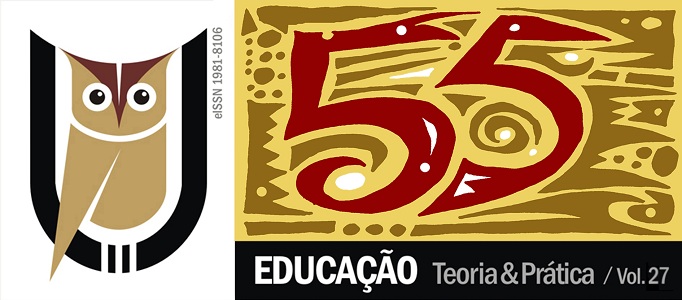INTRODUCING OTHER SOLAR SYSTEMS IN SCIENCE CLASSES THROUGH ONLINE TOOLS AND DIGITAL APPLICATIONS
DOI:
https://doi.org/10.18675/1981-8106.vol27.n55.p428-450Keywords:
Astrobiology. Exoplanets. Science Teaching. Digital Tools. Citizen Science.Abstract
The discovery of exoplanets – planets orbiting other stars – has strong implications not only on our knowledge of solar systems but also on the study of life in the universe as it expands the possibilities of habitability in our galaxy. Although research in this area is evolving rapidly since the late 1990s, the Primary Education´s textbooks and curricula of Natural Sciences still have an obsolete view of Astronomy, ignoring the diversity of planets and solar systems identified by science. This fact turns out to obliterate the student access to such knowledge, thus limiting the work of teachers. The aim of this paper is to present how some tools for scientific dissemination and research can serve the purpose of developing the theme life and universe in schools. Such tools include applications for tablets, official websites, simulators and citizen science projects – through which Internet users can contribute directly with scientific research.Additional Files
Published
How to Cite
Issue
Section
License
Authors who publish in this journal agree to the following terms:
a) Authors assign copyright to the journal, with the work simultaneously licensed under the Creative Commons Attribution License that allows sharing of the work with acknowledgment of authorship and publication in this journal.
b) The policy adopted by the Editorial Committee is to assign copyright only after a period of 30 months from the date of publication of the article. After this time, authors interested in publishing the same text in another work must send a letter to the Editorial Committee requesting the release of the assignment of copyright and wait for a response.
c) This journal provides public access to all its content, since this allows greater visibility and reach of published articles and reviews. For more information on this approach, visit the Public Knowledge Project, a project that developed this system to improve the academic and public quality of research, by distributing OJS as well as other software to support the public access publication system to academic sources. The names and email addresses on this website will be used exclusively for the purposes of the journal and will not be available for other purposes. This journal provides open any other party  This work is licensed under a Creative Commons License
This work is licensed under a Creative Commons License











